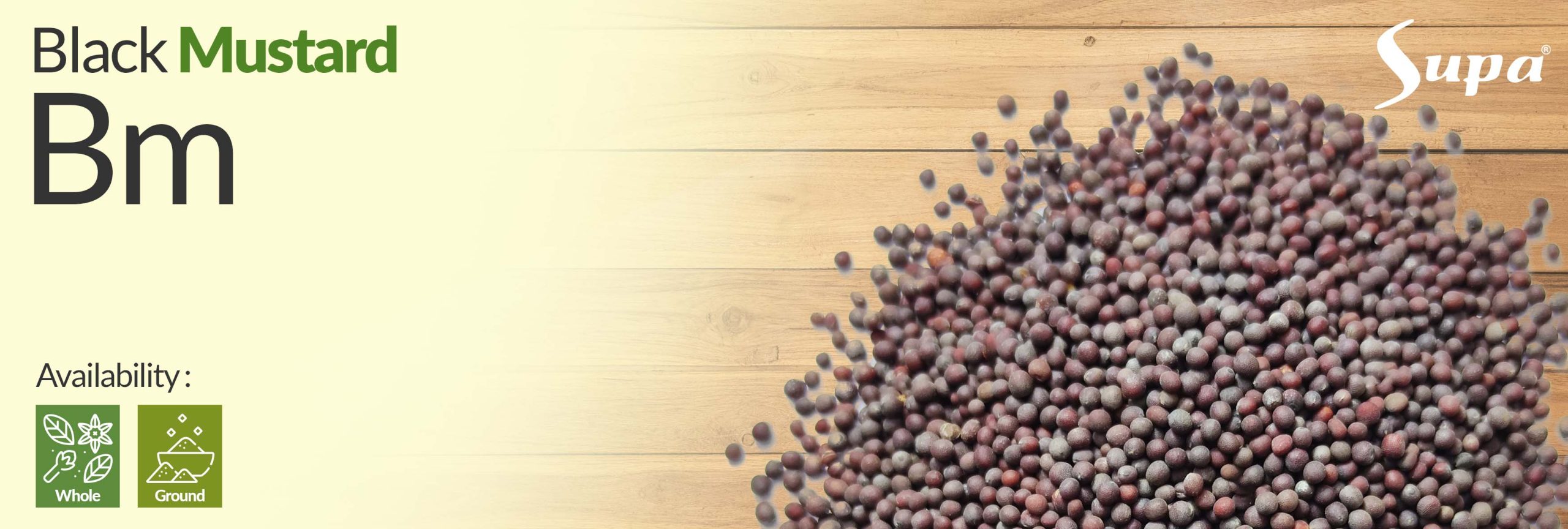
The history of black mustard, scientifically known as Brassica nigra, can be traced back to ancient civilizations in the Mediterranean and Middle East. Native to these regions, black mustard seeds have been used for thousands of years as both a culinary spice and a medicinal herb. The ancient Egyptians and Greeks valued black mustard for its pungent flavor and potential health benefits. It was also mentioned in ancient texts, including religious scriptures, for its significance in various cultural practices.
The use of black mustard seeds spread through trade routes to other parts of the world, including Asia. In India, black mustard became an essential spice in Indian cuisine, particularly in regional dishes from the eastern states of Bengal and Odisha. In Indian cooking, the seeds are often used as a tadka or tempering in cooking oil to release their characteristic pungency and aroma.
Throughout history, black mustard has been appreciated not only for its culinary uses but also for its medicinal properties. It was believed to have various health benefits and was used in traditional herbal remedies for ailments such as digestive issues and respiratory problems.
Today, black mustard remains an integral part of global cuisines and is used as a spice in various savory dishes, pickles, and condiments. Its distinctive flavor and aroma continue to be celebrated, and its historical significance as a versatile and cherished spice endures in culinary traditions worldwide.
Flavor: Black mustard seeds have a sharp, hot, and tangy flavor with a noticeable spiciness. They are more intense and peppery than their yellow mustard counterparts, making them a popular choice for adding heat to dishes. Taste: When consumed, black mustard seeds provide a strong and biting taste, which intensifies when the seeds are crushed, ground, or cooked. The taste is often described as biting or even sinus-clearing due to its spiciness. Aroma: Black mustard seeds have a robust and aromatic scent that is both peppery and earthy. The aroma becomes more pronounced when the seeds are toasted or heated, releasing their potent fragrance.
Culinary Spice: Black mustard seeds are used as a spice in cooking to add a pungent and spicy flavor to various dishes. They are often used in pickling, curries, and spice blends. Mustard Paste: Black mustard seeds can be ground into a paste and mixed with water, vinegar, or other liquids to create mustard condiments. Black mustard paste has a more intense flavor compared to its yellow mustard counterpart. Seasoning: Black mustard seeds are used as a seasoning for vegetables, meats, and pickles. They are often added to oil and heated to release their aroma and flavor. Indian Cuisine: Black mustard seeds are commonly used in Indian cooking, particularly in dishes from the eastern regions of the country. They are a key ingredient in tempering (tadka) spices used to flavor dals and vegetable stir-fries. Medicinal Uses: In traditional medicine, black mustard seeds have been used for their potential health benefits, including aiding digestion and reducing inflammation.
Origin : Indonesia Botanical Name : Brassica nigra Composition : Black Mustard Seeds Color : Blackish Brown Moisture Content : Max 10% Shelf Life : 12 Months Loadability : 20 FCL Package : Carton Packing *For more detailed specifications, please feel free to contact us.

